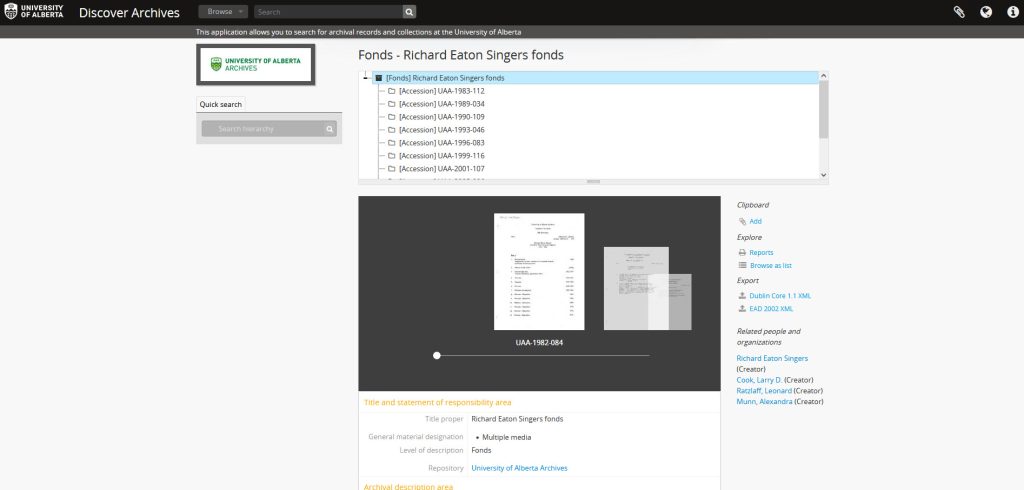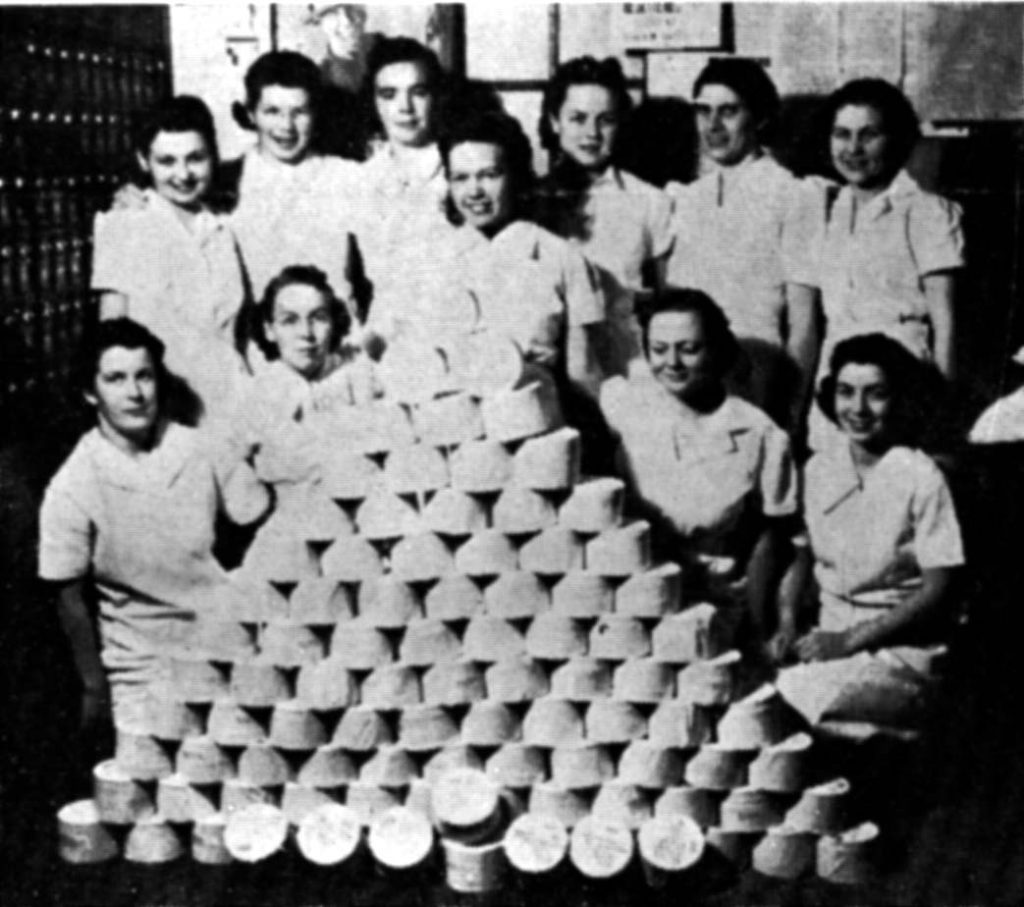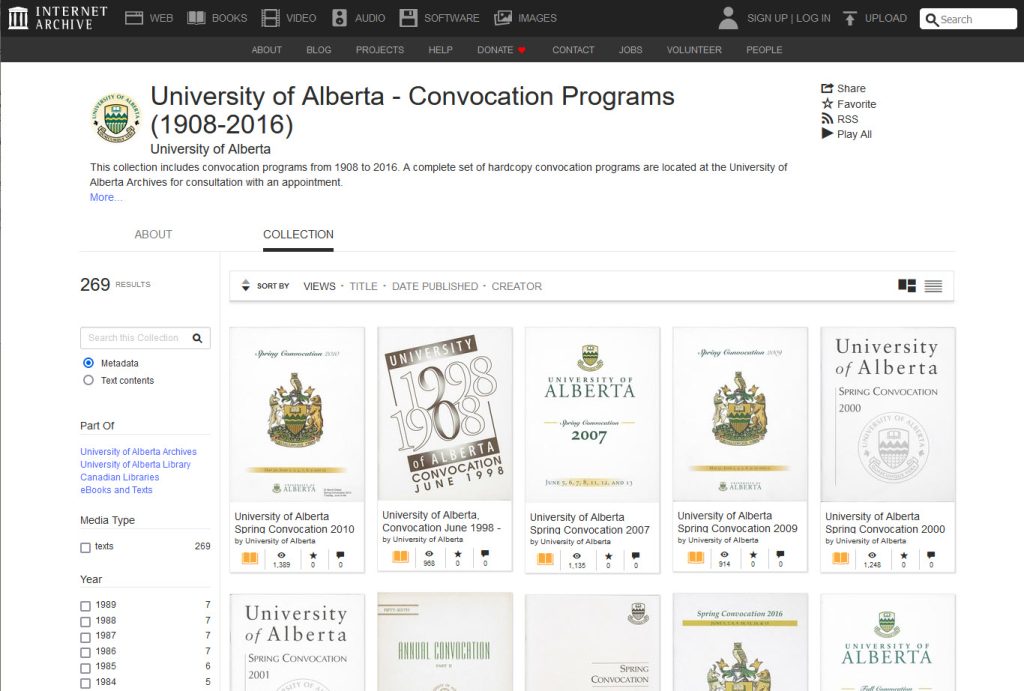So you’re doing research and wondering if the University of Alberta Archives might have relevant materials. Maybe you’re doing some family genealogy research and your Uncle Bob went to the University of Alberta, or perhaps your professor gave you a local history assignment that requires you to consult primary sources. How do you search the archives, anyways?
The University of Alberta Archives (UAA) is the official repository for the permanently valuable records of the University of Alberta and its affiliated institutions. It also collects and makes available private papers from faculty, staff, students, alumni and various university related organizations. In the archives you will find a broad range of primary sources – anything from handwritten papers to computer printouts and born-digital records, published and unpublished materials, research notes, meeting minutes, as well as photographs, videos, and audio recordings.
The Principle of Provenance
Searching archival collections is different from searching for books or journal articles in a library. Archivists organize records based on the “principle of provenance”. This means that archivists should maintain the original order in which the records were created and kept, and not mix records from different creators, even if they’re on the same topic. Therefore, groups of records are named after the person or institution that created or collected the records, rather than by subject content or author. For example, correspondence by Chester Ronning when he was ambassador to China is in the Brian Llewellyn Evans fonds, since it was Mr. Evans who collected this material while researching a book on Chester Ronning.
Organizing materials by the creator helps to maintain the context of a record: who created it, when, and why. But what it means for researchers is that you should be prepared to spend some time looking over records to find the information you need, as everything is not indexed like an academic book or journal.
Searching Discover Archives
Discover Archives is where you can find out what records the UAA holds. This database is also used by Bruce Peel Special Collections and the University of Alberta Library Research & Collections Resource Facility (RCRF).
In Discover Archives, you can search by the name of the people or organization who created the records, such as “Peter Lougheed” or “Department of Political Science”. You can also browse by Subjects, which follow Library of Congress and Provincial Archives of Alberta subject headings. Due to the broad nature of archival records, they are not indexed by subject terms as thoroughly or consistently as library books are.
Some records will have a descriptive inventory or detailed finding aid attached that provides details of individual items and files. Others will only have general information under the “Scope and Content” field, and you will need to contact staff at the archives to find out more information about what is in that record group, or “fonds”. You may need to make an appointment to look through boxes in person at the archives to know if there is anything relevant to your research.
Sometimes it can be hard to find a specific item or person by searching Discover Archives. For example, if you know your Uncle Robert Smith sang in the Richard Eaton Singers in the 1960s, searching “Robert Smith” probably won’t bring up any records, but searching for “Richard Eaton Singers” and then looking in the attached finding aid for descriptions of concert programs or choir photographs from the 1960s will likely include information relevant to your research about Uncle Bob.

When you find a description in a record’s attached finding aids or descriptive inventories of what you need, you can contact the UAA to find out if there is a scan of that item, or make an appointment to see the physical item.
Digitized Collections of the UAA
If you are looking for University of Alberta convocation programs, course calendars, yearbooks or the student newspaper, they are available on Internet Archive. Searching for names in the text contents of any of these collections is a very helpful way to find information when doing research. This blog post includes helpful hints about searching in Internet Archive collections. A small number of the photographs and audio/video materials held by the archives are also available online.
University of Alberta Archives staff understand that searching the archives can be daunting, and are here to help. If you’re having trouble finding materials, contact them at archives@ualberta.ca or phone 780-248-1300 for help. Archivists love to see their collection used by researchers! And if the UAA doesn’t have the records you’re looking for, Alberta on Record is a great place to find what is held in archives across Alberta.
If you can’t find it online… ASK!
Thanks for the read! Love us on the blog? Chances are, you’ll love us on social media! Follow us, @uofalibrary, on Instagram & Twitter!


